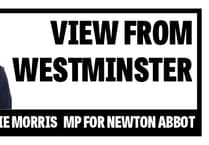TEIGNBRIDGE Council consultants project that Four Screen Cinema will be viable if, on average, 417 people attend every day.
The consultant’s report commissioned by Teignbridge District Council on the viability of the proposed four-screen cinema for Newton Abbot concludes that it is ‘Likely to be commercially viable, providing the cinema is event driven, community focused and there are ample ancillary and complementary offers and service available within the proposed site’.
What is remarkable about this viability conclusion by the consultants is that it is based on their projection that attendances can be built up to 152,334 per year, which means an average of 417 people attending the cinema every day of the year. This is the equivalent of every resident of Newton Abbot aged 0 to 100 attending the cinema at least five times a year.
Importantly, the consultant’s report shows that their projected attendance figure is greater than that planned by Scott Cinemas. Scott Cinema’s lower projection results in the cinema never making a profit. However the consultants believe that their higher attendance figure can be achieved by the cinema being ‘event driven’ and by the other factors mentioned in their conclusion – which it seems Scott Cinemas had not planned for.
The focus of the consultant’s report is on the justification for the additional £600,000 that Scott Cinemas are insisting that the Council should contribute to the fitting out costs that are Scott’s responsibility.
This would lift the total council contribution to those costs to £1.5 million. Scott Cinemas are asking for the extra money because of the inflation in fitting out costs which is projected to increase these costs by £250,000. It is unclear from the report why the council is being asked to pay more than double the increase in those costs.
The consultants advise that the project delivery team ‘will have to work extremely hard to bring the cinema fit out in on budget’ and point out that some budget allowances are ‘what would be allowed for a ‘standard’ cinema, but lower than required for higher specification finishes’ and that ‘standard’ seats could be purchased within the budget allowance, but the ‘luxury and recliner allowances are tight’.
The risk to the project of rising costs is just one of the many risks and uncertainties that the cinema proposal faces and which are discussed in the report. By far the biggest risk is that of a fundamental change in cinema attendance habits.
Currently cinema attendances nationally are down by about 30% on pre-Covid levels, partly because of continuing virus-induced “hesitancy”, but also because of the increased popularity of streaming services such as Netflix and Disney.
This trend to streaming services is exacerbated by there being fewer ‘blockbuster’ releases and the trend for less popular films to be shown primarily on streaming services. So much of the projected attendance at the proposed cinema depends on audiences coming back in pre-Covid numbers, and at this moment in time there is great uncertainty.
There are many major uncertainties and risks relating to the construction of the cinema and whether the money promised by the Future High Steet Fund can be spent by their March 2024 deadline. If the construction is still in progress then there is a high risk that the balance of the funding will be withdrawn leaving the Council to pick up the tab.
There is still uncertainty as to whether the council should give itself planning permission and listed building consent for a building that clearly breaches the council’s own planning policies, and if it does so, whether an application will be made for a judicial review of the council’s decision.
However the crucial issue to be decided by councillors on Thursday is whether they should allocate an additional £600,000 to the cinema project from the council’s resources and effectively take that money away from other services that are likely to be desperately short of funds as the country enters a lengthy period of austerity.




